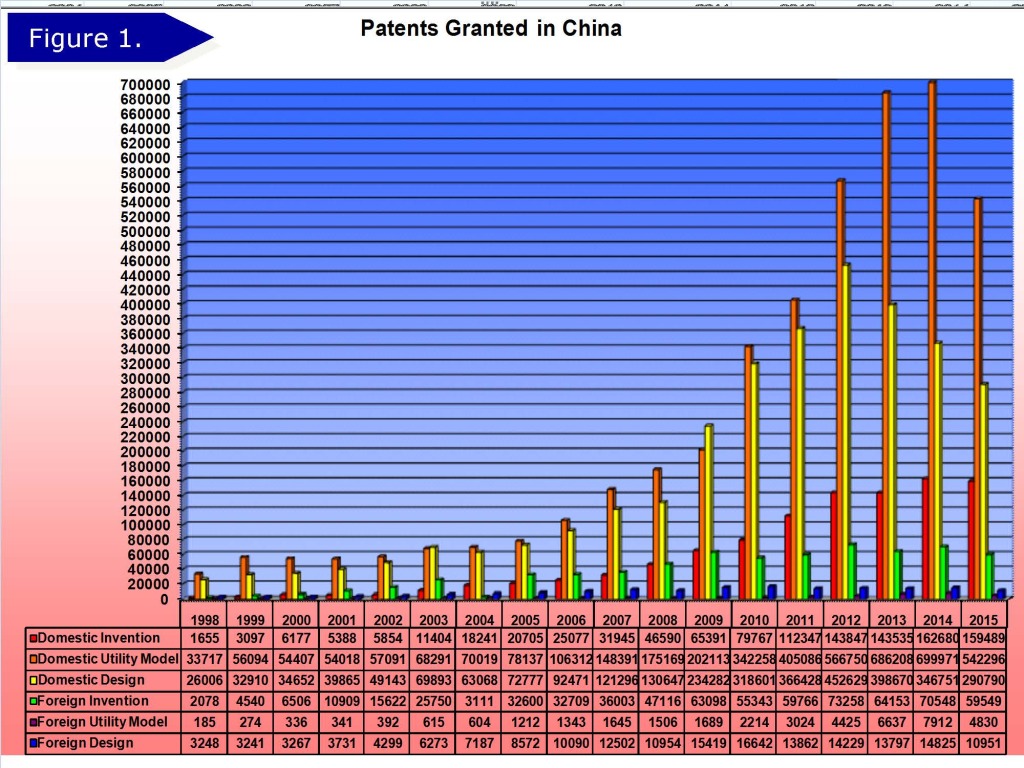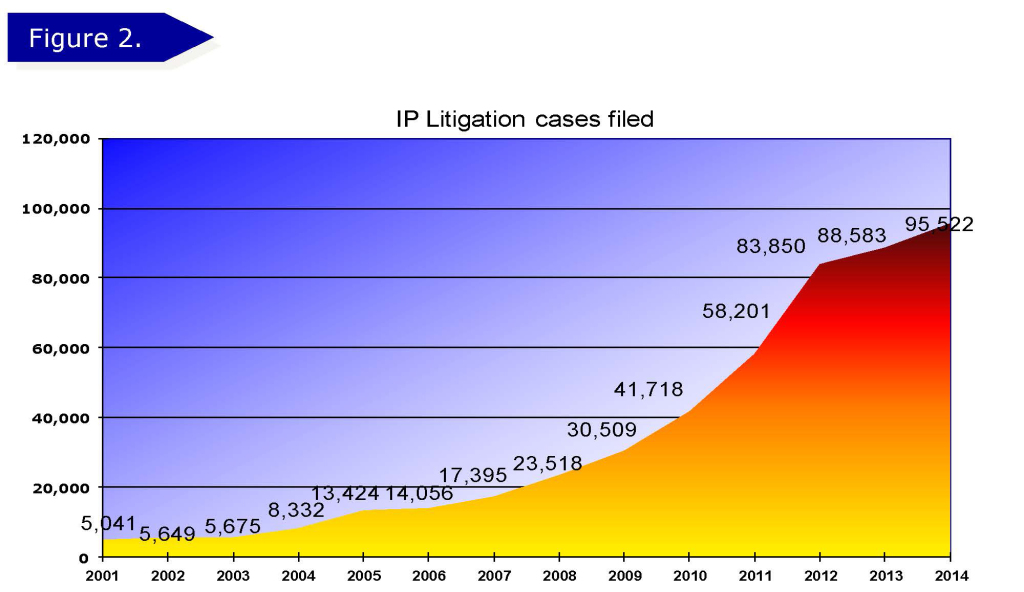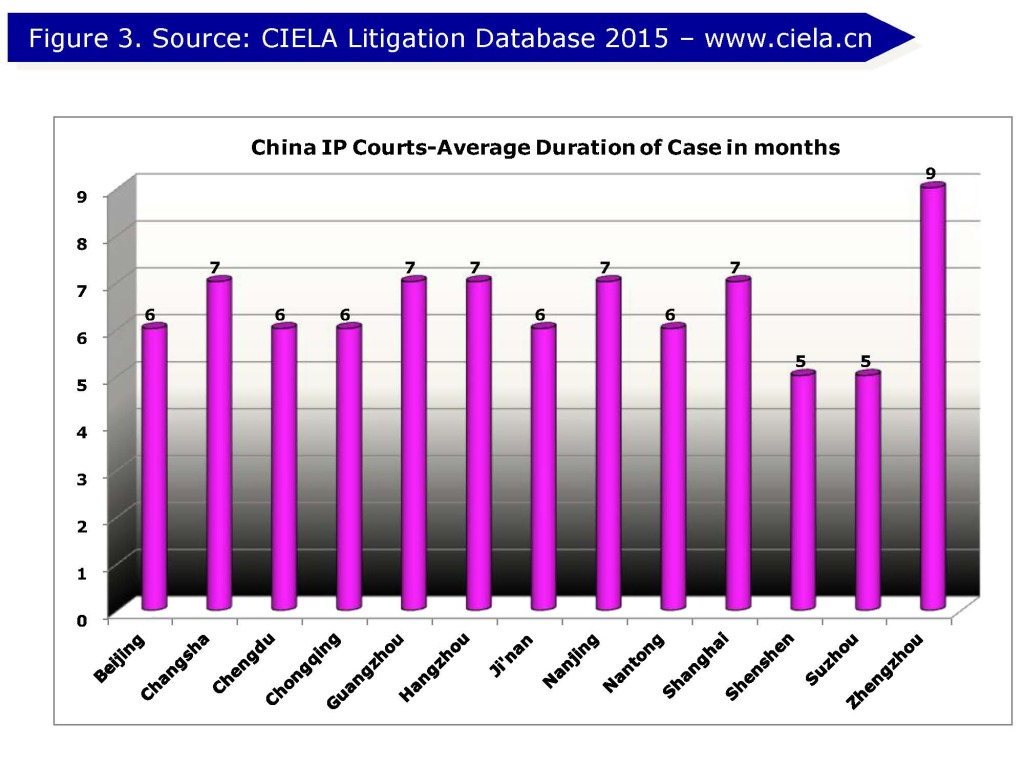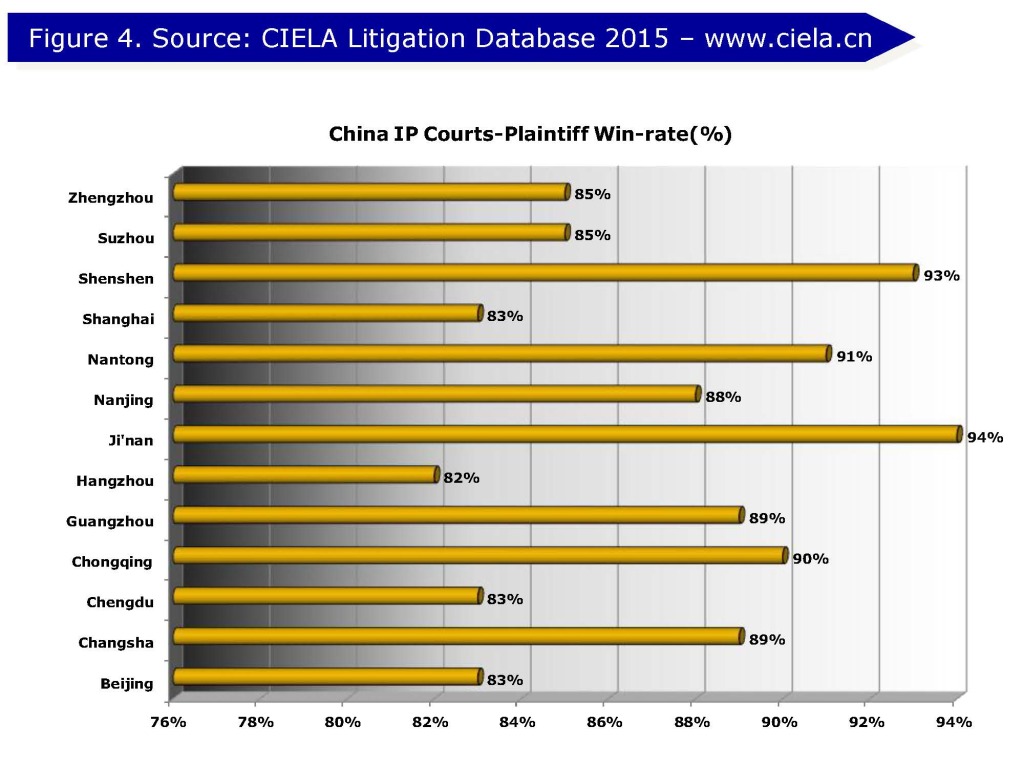There has been a recent rise in the number of IP infringement cases filed by domestic plaintiffs against foreign defendants. These cases are often initiated as a part of a strategy for domestic companies to corner a market and eliminate foreign competition. At best, being on the wrong end of an IP lawsuit is a distraction; at worst, it can result in financial losses and reputational damage and could even force you out of the game altogether. Elliot Papageorgiou, chair of the Chamber’s IPR Working Group and Executive and Partner at Rouse, expands on the reasons behind this trend and provides advice on minimising risks and how best to defend yourself if you find yourself defending in a litigation battle.
What’s behind the increase of Chinese IP plaintiffs?
Over the last five years there has been a tremendous growth in the number of Chinese IP plaintiffs. The reasons for this phenomenon include:
- a greater number of Chinese IP rights being registered by Chinese companies, especially invention patents and utility model patents;

- the emergence of a litigation culture—and especially IP litigation—in China, to the point where in 2014, over 95,000 new IP litigations were filed;

- Chinese companies learning from hard, and often expensive, overseas experiences where they have often been IP-defendants; and
- the Chinese market simultaneously being exposed to greater internal competition and slowing growth, along with an increase in labour costs – meaning that ‘competitive space’ needs to be created through other means, including through enforcement of IP rights.
Irrespective of its causes, the increased levels of IP-assertiveness of domestic companies, poses a significant risk to European companies’ business-models, market-access and their ‘freedom to operate’ in China. The questions is, how to minimise such risk?
Minimising risk
The first step for European companies looking to minimise the risk of becoming IP defendants in China is to not underestimate the Chinese market, the sophistication and innovativeness of local companies and the general levels of IP awareness that now pervades China. More specifically, as would be the case in any market (whether a home or export market), European companies need to conduct IP due diligence for any products they introduce into the Chinese market. It is no longer enough to assume that because a European company had conceived a particular product that it was necessarily the first to do so.
Second, and following on from above, it is essential for European companies to secure their own IP rights as soon as possible and carefully monitor the competitive landscape in China. Specifically, they should treat Chinese companies in the same market as genuine (or at least future potential) competitors and vigilantly search and track their IP portfolios and filing strategies.
Third, as is the case in other competitive markets like the United States, European companies should regularly conduct litigation due diligence, to gauge their exposure to potential litigation, for example, by reason of rapid business success, market-growth at the expense of domestic competitors and weakness in their China IP portfolio.
Finally, European companies should see China IP litigation as inevitable and prepare for it accordingly. Without providing an exhaustive list, there are some important ‘do’s and don’ts’ that European companies should observe to minimise risk and maximise readiness for when the inevitable occurs.
Do’s and Don’ts
European companies SHOULD:
- Always seek and register their own IP rights in China – the system of IP registration is such that ‘urban myths’ of IP rights reaching competitors via Chinese IP authorities, are entirely unsubstantiated;
- Search for competitor’s rights – conducting a search of the filings of competitors (even imitators) is essential as various subsidies in China have resulted in a veritable explosion of local filing – a competitor without IP rights is now the exception;
- Proactively invalidate competitors’ IP rights which pose a genuine risk – European companies should not wait and ‘let sleeping dogs lie’. These proverbial dogs will only sleep until they have the IP-strength to bite you where it hurts;
- Be prepared to defend enforcement actions at trade fairs [please see the article on page 26 for more information] – in this competitive climate, Chinese companies are prepared to be more ‘disruptive’ at Chinese trade fairs and exhibitions;
- File non-infringement declaration actions if they have received ‘on-notice’ / ‘please explain’ / warning letters. In these proceedings for declaratory judgements the applicant becomes the ‘plaintiff’ and the jurisdiction for such claims is the location from where the warning letters were sent – both factors giving control over proceedings to the former potential defendant European company;
- Prepare for injunctions and evidence preservation orders if litigation is coming – China’s new IP courts (in Beijing, Shanghai and Guangdong) provide an as-yet-incalculable opportunity for plaintiffs to secure such orders;
- Seek to contest jurisdiction and seek to optimise the ‘forum’ where litigation occurs to reduce the plaintiffs’ home advantage;
- Look for opportunities to file counter-claims and counter-actions for patent infringement (assuming they have patents), or unfair competition where appropriate; and
- Manage business expectations as to litigation outcomes – even if European companies successfully defend IP litigation actions, or if the actions turn out to be entirely spurious and unfounded, the level of restitution will be modest.
European companies should NOT:
- Forget to register IP rights in China, even if China is neither an original equipment manufacturing location nor presently a market for their products or services;
- Underestimate Chinese competitors, their innovation and especially the impact and enforceability of utility models, which, under the right preconditions, are just as enforceable as patents, with similar bases for compensation;
- Ignore ‘on-notice’ and warning letters coming from Chinese companies – any and all such mailings should be escalated within the business promptly;
- Forget that Chinese defendants have a home advantage, which they will exhaust to the fullest potential;
- When not yet threatened, invalidate Chinese IP rights where there is doubt as to the success of such invalidation, as to do so will merely confirm the portion of the rights not invalidated – in effect confirming their validity and making them easier to enforce in future;
- Refuse court-recommended mediation – Chinese judges performance assessment includes showing an ability to facilitate a ‘harmonious solution’. As a result Chinese judges will often ask the parties whether they are prepared to mediate at various stages of the litigation process. As the timeline in Chinese litigation is often quite tight (many courts seek to conclude cases in much less than a year figure 3) especially for foreign defendants who may have to spend additional time to formalise documents, evidence and materials overseas, any steps which may extend the timeline may be helpful;

- Underestimate the levels of compensation awarded against foreigners. While the win-rate in IP litigation between foreigners and local companies is about the same (in the leading IP jurisdictions in China, generally plaintiffs, whether Chinese or foreign, have a greater than 80% chance of prevailing figure 4), the compensation awards against foreign companies are substantially higher. This is because foreign companies have fewer opportunities to ‘engineer’ margins and profit levels than local companies do, so the bases on which compensation for infringement are calculated by courts are generally higher; and

- Finally, and most importantly—and perhaps patently obvious—if at all possible, European companies should do all they can to not become defendants in an IP litigation.
This brings us full circle to the most important point of both the do’s and don’ts: make sure you have IP rights you can rely on – they give you the best opportunity to counterclaim, negotiate a settlement or indeed maintain your ‘freedom to operate’ in such a way as to reduce the chances of lawsuits in the first place. This can only be a good thing for everyone … except perhaps for us IP lawyers.
As Executive and Partner at Rouse & Co International LLP, Elliot Papageorgiou represents international companies in IP disputes, especially patent and utility model infringement disputes. His current practice increasingly focuses defending European companies against intellectual property infringement lawsuits brought by Chinese competitors. Please turn to the next page to read an interview with Elliot on his work with the IPR Working Group.

![240722797_vector [Converted]](http://www.eurobiz.com.cn/wp-content/uploads/2015/10/240722797_vector-Converted-1024x719.jpg)

Recent Comments